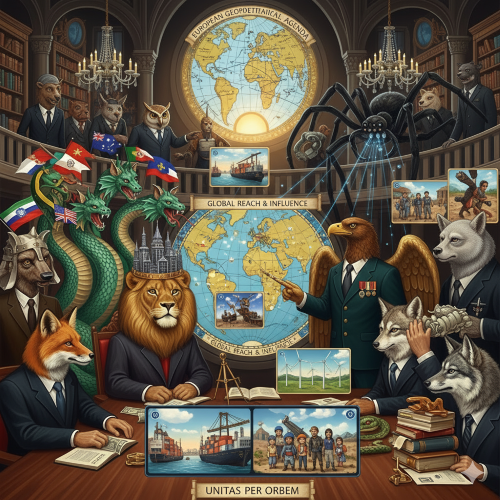What alternatives to European partnerships are African nations pursuing to reclaim sovereignty over their resources?

African nations are actively pursuing alternatives to European partnerships to reclaim sovereignty over their resources.
They're doing this by diversifying their alliances with rising global powers, fostering greater intra-African economic integration, and asserting more control over their own development narratives and policies.
Diversifying Economic and Political Partnerships
African nations are consciously moving away from an over-reliance on traditional European partners and forging new relationships with a wide range of global players. This strategy gives them more negotiating leverage and options for investment and trade.
-
China: China has emerged as Africa's largest trading partner and a primary alternative to Europe. Its model of engagement, often under the Belt and Road Initiative (BRI), focuses on large-scale infrastructure projects like roads, railways, ports, and power plants. This approach is attractive to African leaders because it is often "no-strings-attached," meaning it doesn't come with the political conditionalities on governance or human rights that European partnerships often do. For example, China's investments have helped countries like the DRC and Zambia develop new ways to transport minerals, reducing their dependence on traditional trade routes controlled by European interests.
-
The Gulf States: Countries like the United Arab Emirates and Saudi Arabia are also becoming significant investors in Africa. They have been rapidly expanding their footprint by focusing on sectors that align with their own economic diversification strategies, such as energy, logistics, and agriculture. Their investments, often characterized by a flexible and rapid deployment of funding, provide a fresh source of capital that is not tied to the Western model of aid.
-
Russia and Turkey: Russia's influence is primarily in the security sector, offering military assistance and training, often through private military contractors like the Wagner Group. This has provided an alternative to European military presence, particularly in the Sahel region, where countries like Mali and Burkina Faso have expelled French troops in favor of Russian security partnerships. Turkey's role is a unique blend of military, economic, and cultural engagement, offering military hardware like drones and investing in infrastructure projects, which helps African nations diversify their defense capabilities away from European suppliers.
Promoting Intra-African Economic Integration
African nations recognize that true economic sovereignty requires them to trade more with each other, rather than exporting raw materials to the West. This push for self-reliance is at the heart of their collective strategy.
-
The African Continental Free Trade Area (AfCFTA): The AfCFTA is the most ambitious project for African economic integration. By creating a single market of 1.3 billion people, it aims to reduce tariffs on goods and services, promote industrialization, and build regional supply chains. This will lessen Africa's reliance on external markets and make the continent a more formidable and cohesive negotiating bloc in future trade deals with Europe and other powers.
-
Investing in Value Addition: African nations are actively pushing to add value to their own resources instead of just exporting them raw. For instance, countries with vast mineral reserves are demanding that foreign companies build local processing and manufacturing plants. This is crucial for capturing a larger share of the value chain, as opposed to the current model where the vast majority of profits are generated after the raw materials leave the continent.
Asserting Political and Intellectual Sovereignty
Beyond economics, African leaders are asserting their political and intellectual independence on the global stage.
-
The African Union (AU): The AU is increasingly asserting itself as the primary voice for African nations in international relations. It is setting its own agenda for development (e.g., Agenda 2063) and demanding that external partners respect African-led solutions to continental challenges, from peace and security to governance.
-
Demands for Debt Relief and Fair Finance: African leaders are consistently demanding comprehensive debt relief from global financial institutions, arguing that the terms of many loans are a legacy of exploitative lending practices. They are also pushing for reforms within institutions like the IMF and World Bank to give African nations a more equitable say in global financial governance.
-
Cultural and Intellectual Decolonization: At a grassroots level, there is a growing movement to decolonize education and culture. African intellectuals and activists are demanding the return of African artifacts from European museums and are challenging the dominance of Western academic and cultural institutions. This pushback seeks to reclaim African narratives and foster a sense of intellectual self-reliance.
- Questions and Answers
- Opinion
- Motivational and Inspiring Story
- Technology
- Live and Let live
- Focus
- Geopolitics
- Military-Arms/Equipment
- Безопасность
- Economy
- Beasts of Nations
- Machine Tools-The “Mother Industry”
- Art
- Causes
- Crafts
- Dance
- Drinks
- Film/Movie
- Fitness
- Food
- Игры
- Gardening
- Health
- Главная
- Literature
- Music
- Networking
- Другое
- Party
- Religion
- Shopping
- Sports
- Theater
- Health and Wellness
- News
- Culture

